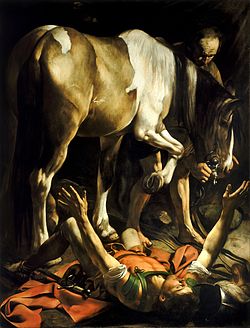Christian liturgical tradition of the Catholic Church, Today we commemorate the event of the conversion of Paul. The fact is one of the most famous and the most mysterious in the history of the Church: Saul or Paul of Tarsus was a tax collector and arch-enemy of the Christians and their persecutor. One day, during a trip to Damascus, along the way, Paul fell (According to some as the painter Caravaggio was falling off his horse and in doing so he painted it) on the ground. Stunned by the fall, a bright light and dazzling wrapped Paul, from the view; God asked Paul why these persecute Christians, inviting them to get up and get into the city. Paul was three days and three nights without seeing and without eating. Paul was reborn as a man of God.
In the first period after the death of Jesus Christ, We are then in the first century a.d., during the years he lived Paul, There was a unitary vision of Christianity. The same Apostles and followers of Christ were different and often conflicting ideas and opinions on how to proceed, especially on how the world should be "scope" the word of God.
It was Paul of Tarsus, miscreant before and first follower then deliver to the Church what was the basis of Christianity and the Christian faith. According to the interpretative visions hostile to the Christian Church Paul created Christianity, that today we know. I believe that, Instead, Paul was the person who was able to better interpret the word of Jesus and, through his letters, spread it to the people of the then-known world. The importance of this character in the history of the Church is essential: unearthly vision of salvation, of faith in Christ and love as a fundamental basis of the Christian life are the three concepts spread by Paul who today form the basis of the Christian faith. Despite her figure may be obscured by that of Peter, appointed by Jesus his successor, and base, or rather stone, of his Church, was Paul the engine of early Christianity. His letters to the peoples of the Earth continue today to be read during liturgical celebrations because at a distance of two thousand years are still that way in which people can convert.
Roberto Rossetti
